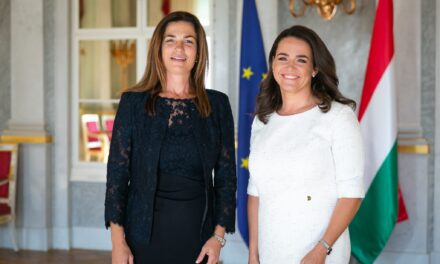On July 19, 2022, the Hungarian Parliament adopted a resolution on the Hungarian position to be represented regarding the future of the European Union, the text of which is published below.
32/2022 of the Parliament. (VII. 19.) OGY decision
1. An armed conflict is raging in the immediate neighborhood of Hungary. The economic effects and security challenges of the war also directly affect the Hungarian people. The ill-considered sanctions decisions of the international community against Russia further complicate the situation of our country and our citizens. Europe has entered a new era, an era of crises and uncertainties.
2. The institutions of the European Union initiated a Conference on the future of Europe. The recently concluded series of events was intended to assess what EU citizens think are the biggest challenges facing us and how to prepare the European Union for them.
3. The Parliament notes with regret that instead of an open and democratic dialogue, by excluding a significant part of citizen contributions, the Conference has become a servant of the political and ideological aspirations of forces interested in abolishing the sovereignty of the member states and increasing the power of the EU bureaucracy.
4. At the same time, the Parliament welcomes the fact that the Hungarian citizens took part in the events of the Conference with outstanding activity far exceeding the European average. He stands by the opinion of the Hungarian people: the European Union must change because it is unprepared for today's challenges.
5. The experience of the past decade shows that only strong and capable member states are able to protect their citizens. The task of the European Union is to support its member states in effective crisis management.
6. However, the current contractual framework of the European Union is not suitable to serve as a basis for cooperation in the era of crises. The Parliament deems it necessary to revise the EU Treaties as follows.
- The objective of "ever closer unity" must be deleted from the Treaties. Integration is not an end in itself, but a means: a means to the fulfillment of our national freedom.
- Europe's Christian roots and culture are the basis of European integration, which serves as a moral compass in an era of uncertainty. This principle must appear in the Treaties.
- The political and ideological neutrality of the European Commission must be clearly stated in the Treaties.
- In accordance with the principle of subsidiarity, the competences that can be exercised through the institutions of the European Union must be reviewed and recorded in a detailed catalog.
- Europe must be able to defend itself. Its military capabilities and its underlying industrial capacities must be strengthened, and a common European army must be set up as the custodian of European security.
- Europe must protect present and future European generations. Addressing the demographic challenge and supporting families should appear as an EU objective in the Treaties.
- At the contractual level, the right of every people to decide who they want to live with in their country must be guaranteed.
- The responsibility for future generations also means that we cannot pass the financial burden of our decisions onto our children and grandchildren. The Treaties must provide for the prohibition of taking on further EU debt.
– European democracy must be led out of the dead end where it was governed by the European Parliament. Representatives of the European Parliament should be delegated to national parliaments, thus ensuring real political legitimacy.
- It should be possible for national parliaments to prevent unwanted EU legislation, as well as for member state governments and national parliaments to initiate EU legislative procedures.
– Indigenous national minorities living in the territory of the European Union must be protected by treaty and support must be provided to them.
- The European perspective of the countries of the Western Balkans must be specifically strengthened in the Treaties.
7. The Parliament calls on the Government to represent the above position during the follow-up of the Conference.
8. The Parliament also calls on the Government to forward this resolution as the position of the Hungarian Parliament on the future of Europe to the President of the European Council, the European Parliament and the European Commission, as well as the President-in-Office of the Council of the European Union.
9. This decision enters into force on the day following its publication.
The document was published in the 2022 issue 119 of the Magyar Közlöny.
Cover image: The Hungarian Parliament
Source: https://abtk.hu/József Sisa recording













